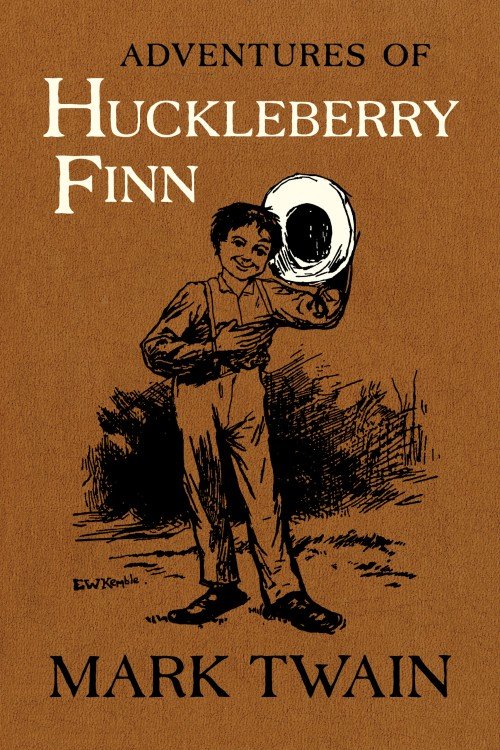
"The Adventures of Huckleberry Finn" is a classic American novel written by Mark Twain. It was first published in 1884 and is considered one of the greatest works of American literature. The novel tells the story of Huck Finn, a young boy who runs away from his abusive father and embarks on a journey down the Mississippi River with a runaway slave named Jim. Along the way, they face numerous challenges and obstacles, including dangerous criminals, deceptive conmen, and treacherous rapids.
One of the most striking aspects of the novel is its vivid portrayal of life in the American South in the mid-19th century. Twain's descriptions of the landscape, the people, and the customs of the region are both realistic and poetic. He captures the rhythms and cadences of Southern speech with remarkable accuracy, and his characters are drawn with depth and complexity.
At its core, "The Adventures of Huckleberry Finn" is a story about the struggle for freedom and individual autonomy. Huck and Jim are both seeking to escape the constraints of society and to chart their own paths in life. Huck is trying to escape the abuse and neglect of his father, as well as the stifling conformity of his hometown. Jim, as a slave, is seeking to escape the shackles of his bondage and to reunite with his family.
Throughout their journey, Huck and Jim form a powerful bond of friendship and mutual support. Despite the differences in their backgrounds and circumstances, they come to see each other as equals and as fellow travelers on the road to freedom. Their adventures down the river become a metaphor for the larger journey of the human spirit, as they confront danger, temptation, and uncertainty in their quest for a better life.
One of the most striking aspects of "The Adventures of Huckleberry Finn" is its vivid portrayal of life in the American South in the mid-19th century. Mark Twain's descriptions of the landscape, the people, and the customs of the region are both realistic and poetic. He captures the rhythms and cadences of Southern speech with remarkable accuracy, and his characters are drawn with depth and complexity.
Another striking aspect of the novel is its critique of slavery and racism. Although the novel has been criticized for its use of racial slurs, it also portrays the humanity and dignity of Jim, the runaway slave who travels down the river with Huck. Twain shows that Jim is not merely a piece of property, but a human being with his own hopes, fears, and dreams. Through Huck's gradual realization of Jim's humanity, the novel challenges the prevailing racist attitudes of its time.
The novel also explores the theme of individual autonomy and the tension between societal norms and personal freedom. Huck, who is constantly struggling to assert his own independence and resist the pressures of conformity, ultimately chooses to follow his own moral compass rather than the dictates of society. Through Huck's journey, the novel raises important questions about the nature of individual freedom and the role of society in shaping our lives.
Finally, the novel is known for its humor and satire. Twain's wit and irreverence shine through in his depiction of the various characters and their adventures down the river. From the bumbling King and Duke to the superstitious Jim and the naive Huck, the novel is populated with a cast of colorful and memorable personalities. Twain's humor and satire help to lighten the mood and provide a counterpoint to the serious themes and issues explored in the novel.
"The Adventures of Huckleberry Finn" is a complex and multifaceted novel that rewards careful reading and reflection. It has been widely praised for its literary merit, its social commentary, and its enduring relevance to the American experience. It is a timeless work of art that speaks to the universal human desire for freedom and self-determination. If you haven't read it yet, I highly recommend it as an essential piece of American literature.








